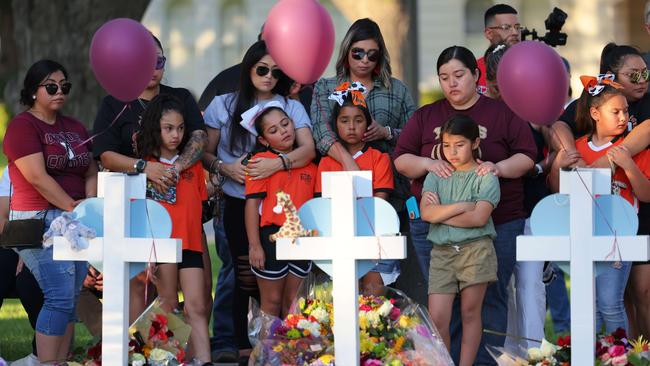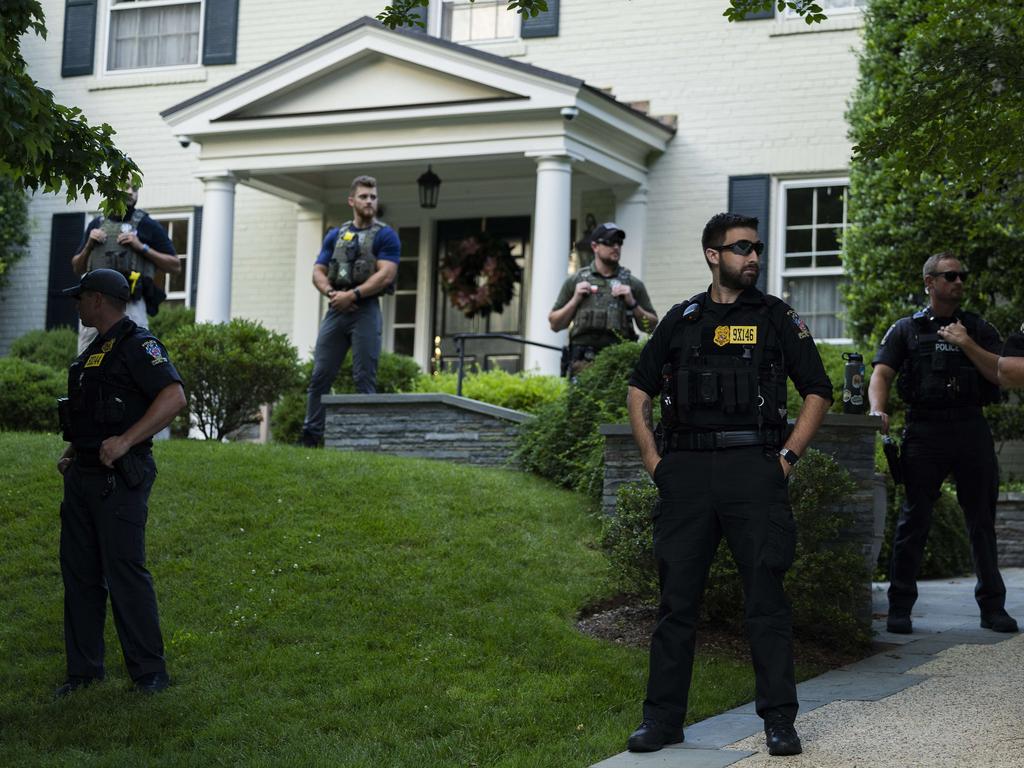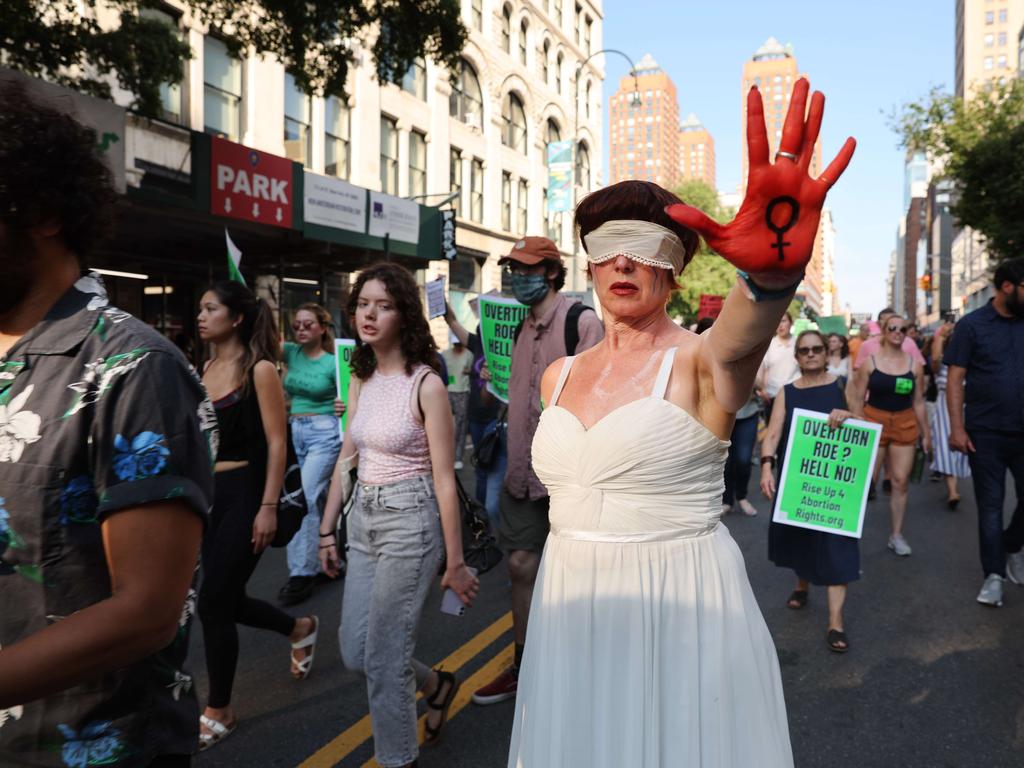
Those who describe themselves as pro-life oppose abortion on the grounds that every human life is precious. While my thoughts on abortion are complex, I find it hard to disagree with this sentiment. Every life is precious. Which is why pro-life politicians should keep going after they tackle abortion and pass legislation that protects life in all stages of the lifespan.
Let’s start with infancy. The infant mortality rate is three times higher in the US than in other rich nations. And infant mortality rates are highest in some of the states (Arkansas, Alabama) that have just banned abortion. Infants die when they are born pre-term, with a very low birth weight, and when they are born with congenital malformations, deformations and chromosomal abnormalities. They also die from sudden infant death syndrome, unintentional injury and other causes when the mother is not well. Mississippi, for example, has an infant mortality rate of 8.4 deaths per 1000 live births – 270 per cent higher than Australia’s.
A pro-life policy proven to reduce infant mortality rates in other nations is paid maternity leave. Paid maternity leave allows mothers to stay at home with their babies, to breastfeed and bond with them. Sadly, as many as 23 per cent of employed American mothers return to work 10 days after giving birth because they have no other option. Despite such clear and obvious benefits, the US remains the only country without a paid maternity policy among industrialised nations.
Older children do not fare much better. The Population Reference Bureau released a report this year that found Americans aged 15 to 25 are twice as likely to die as their peers in other wealthy nations. The leading causes of death in this age group are homicide, unintentional injury and suicide. The PRB report states: “Although US life expectancy at birth was 78.8 years as of 2019, 59,865 people under age 25 died that year, including 20,921 infants under age one.”
What drives these deaths? The factors are complex and are tied to poverty, race and entrenched cultural disadvantage. But one variable stands out for its uniqueness to the US: availability of firearms.
In 2020, 45,222 people in the US died from gunshot wounds (mostly because of homicide) and, of those, 10 per cent were children aged one to 19. So many children now die from gunshot wounds that gun violence has become the leading cause of death for American children under the age of 19 – not car accidents, accidental poisonings, infections or any other disease, but death by firearm.
Some of the states that are implementing a range of abortion bans also have the highest rates of death by firearm, including among children.
In Mississippi, 28.6 people die from gunshot wounds per 100,000; in Alabama the rate is 23.6; in Oklahoma it is 20.7; in Arkansas it is 22.6; and in Louisiana it is 26.3. (To put this in perspective, the rate in Australia for 2019 was 0.9 per 100,000.)
A pro-life policy towards firearms would require gun owners to be members of a “well-regulated militia”, as originally stated in the US constitution. If all gun owners had to be members of an organisation that regulated gun usage – as the second amendment intended – then rogue (or mentally unwell) owners could be monitored and flagged with law enforcement. A pro-life policy towards firearms would involve, at the very minimum, serious vetting for weapons of war, such as the AR-15. A coherent pro-life position also would pass child access prevention laws at the federal level, would penalise parents for leaving loaded guns around the house in the presence of children.
Pro-life policies would ensure that school is a safe place for kids, too. In the two years of 2020 and last year, there were 93 mass shootings, 43 that involved fatalities and 50 that involved injuries at public and private schools across the country. In Uvalde, Texas, a state that also has a trigger law on the books that will ban abortion sometime in the near future, 19 children were shot dead while attending school in May.
The Uvalde shooter did not have to be a member of a gun club or undergo training or vetting to purchase his murder weapon as well as 375 rounds of ammunition.
Texan law allows firearms to be carried in public, without a licence and without training. Some of the children who were shot in Uvalde had tissue damage that was so severe that they could be identified only by DNA sample.
In striking down Roe v Wade, the US Supreme Court has returned the issue of abortion to the states. This has been celebrated as a win for democracy by many conservatives in the US, as well by some commentators in these pages. Whatever one thinks of the legal and moral validity of the decision, it does appear incongruent that the same court struck down New York’s democratically elected restrictions on handguns last week. (Of course, the court will argue that the right to bear arms is in the US constitution while abortion is not – ignoring the “well-regulated militia” qualification.)
If Republicans’ pro-life position on abortion prompts them to take a closer look at other policies that protect life after birth, then the US Supreme Court’s ruling on Roe v Wade might end up being of net benefit.
But when American mothers are forced to go back to work immediately after birth, and when the leading cause of death for children is gun violence, the rest of the world might be forgiven for remaining sceptical. A more coherent pro-life position would value life beyond the womb and deliver proven policies such as paid maternity leave and sensible gun control. Anything less smacks of hypocrisy.





The pro-life movement is on the march in the US, thanks to the Supreme Court’s decision last week to overturn Roe v Wade, the landmark 1973 case that made abortion a constitutional right.